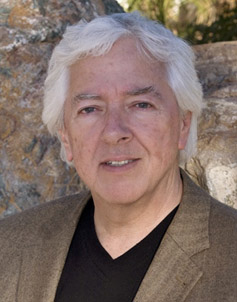VCEHP110: Risk Communication Basics for Environmental Health Professionals
Course Description:
VCEHP110: Risk Communication Basics for Environmental Health Professionals is tenth in a eleven-course learning series.
This course will help environmental health professionals in the interactive process of information exchange with the communities they serve. It will also help them understand how to identify solutions and respond to public concerns.
Target Audience
Public Health, First Responders, Emergency Response and Preparedness Professionals and Healthcare Practitioners
Learning Objectives
- Describe the difference between risk assessment and risk communication
- Understand the public’s perception of relative risks
- Interpret information, encourage people to take legitimate risks seriously, and calm public concerns
- Apply strategies and tactics that will help people protect themselves
Instructor:

John Godec
John Godec consults with and trains businesses and governments in difficult, high-stakes communication strategies, consensus building, crisis and conflict resolution, and public engagement and involvement. He is an International Association of Facilitators (IAF) Certified Professional Facilitator, a curriculum developer, past Vice-President and one of the original master trainers for the International Association for Public Participation (IAP2), current IAP2 USA board member, and a member of the U.S. Institute for Environmental Conflict Resolution. He also helped develop a risk and emergency communication protocol for the National Governors Association.
Mr. Godec has managed projects and trained personnel in the United States, Canada, Mexico, Europe, South Africa, Australia, and Southeast Asia for Fortune 50 corporations; local, state, federal, and tribal governments, and non-governmental organizations. He has been involved with nearly 400 complex and oftentimes controversial public communication and environmental projects for transportation, mining, manufacturing, energy, and public works in his 30-year career. Issues he has addressed include freeway corridor location, design, and construction; major manufacturing facility development; pipeline siting; hazardous waste remediation; urban and regional planning; and a host of other complex topics.
Mr. Godec has been interviewed by NBC, CBS, ABC, CNN, CNN Europe, the Canadian Broadcasting Corporation, the Wall Street Journal, the New York Times, the Los Angeles Times, the Washington Post, and dozens of other national, regional, and local print and broadcast media. He regularly speaks at events about public participation; sustainability, crisis, conflict, consensus, and issues management; and lectures at Arizona State University, Indiana University’s School of Public and Environmental Affairs, and at the Queensland University of Technology in Australia.
Mr. Godec is the former Director of Issues and Crisis Management for Motorola Corporation and the former Communications Director at the Arizona Department of Environmental Quality.
Available Credit
- 1.00 Participation/CETulane Professional and Continuing Education (PaCE) awards 1.00 hour(s) of credit for completing VCEHP110: Risk Communication Basics for Environmental Health Professionals
Price
Required Hardware/software
System Settings
This course is designed to work most effectively if your computer and internet connection meet certain minimal requirements. This course can be accessed using a Windows 10 PC or a Mac with High Sierra1, Mojave, or Catalina. Pop-up blockers should be disabled when viewing the course. Internet Explorer 11 (for Windows 10), or the current version of Google Chrome, Mozilla Firefox, or Apple Safari (for Windows 10 and or Mac) is required. Many of our courses require Java and JavaScript enabled.
Links to External Websites
Links to websites outside this course will open in a new window or tab. Some browsers may minimize the course window. If this occurs, maximize the course window to return to the course.
Adobe Acrobat Reader (for desktops and laptops)
Adobe Acrobat Reader is required to access some documents in this course. If you need to download a free copy of Acrobat Reader, click here.
Internet Connection Speed
A minimum download speed of 1.5 Mbps is recommended for an optimal experience, which is commonly the speed associated with a basic DSL or a cellular/satellite connection. A faster connection, such as cable or fiber service, with further enhance your online experience. A Wi-Fi connection is generally acceptable, but it is dependent upon one of the two services mentioned above. You can check your internet connection speed at http://www.speedtest.net/.

 Facebook
Facebook X
X LinkedIn
LinkedIn Forward
Forward